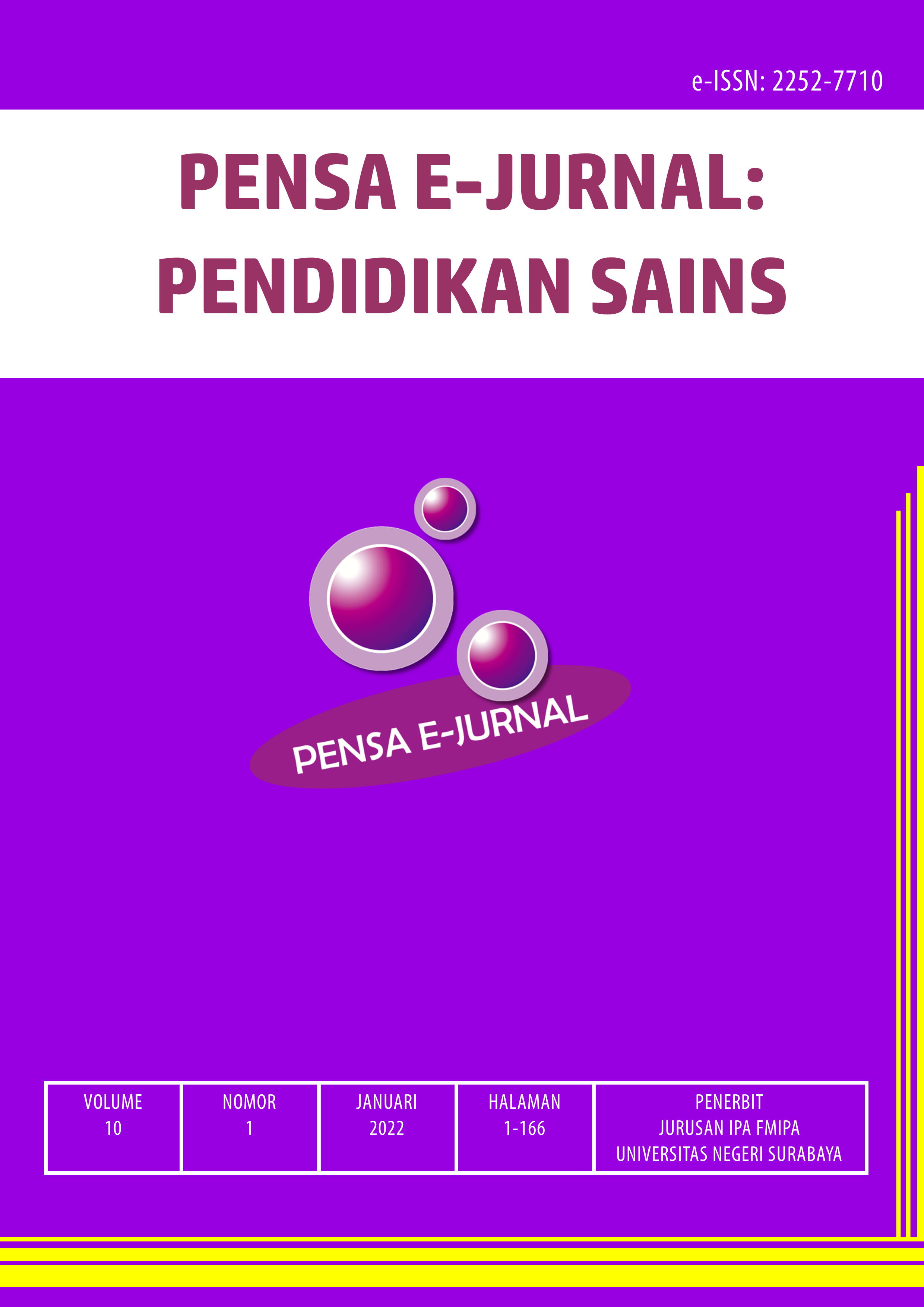ANALISIS KETERAMPILAN PEMECAHAN MASALAH SISWA BERBANTUAN ARTIKEL SOCIO-SCIENTIFIC ISSUE PADA MATERI ENERGI ALTERNATIF
DOI:
https://doi.org/10.26740/pensa.v10i1.41128Keywords:
problem-solving skills, socio-scientific issue (SSI) arcticles, renewable energyDownloads
Download data is not yet available.
Downloads
Published
2022-01-07
How to Cite
Sahertian, D. P., & Hidayati, S. N. (2022). ANALISIS KETERAMPILAN PEMECAHAN MASALAH SISWA BERBANTUAN ARTIKEL SOCIO-SCIENTIFIC ISSUE PADA MATERI ENERGI ALTERNATIF. PENSA E-JURNAL: PENDIDIKAN SAINS, 10(1), 1–7. https://doi.org/10.26740/pensa.v10i1.41128
Issue
Section
Articles
 Abstract views: 887
,
Abstract views: 887
, PDF Downloads: 768
PDF Downloads: 768

















